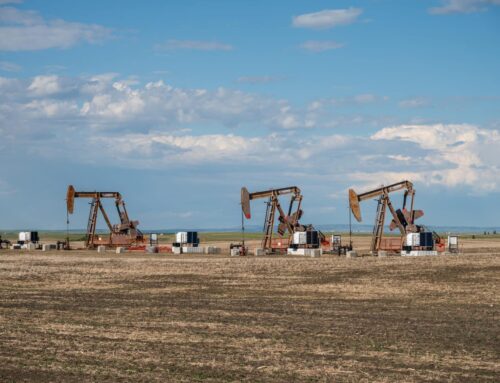The new Congress has moved quickly to roll back numerous rules and regulations issued by the Obama administration on a range of topics, including those governing energy development.
Since January, Congress has voted to eliminate seven rules using the Congressional Review Act. But some senators have noted that this blunt tool doesn’t work in all instances. In the case of methane waste, we strongly argue the pro-taxpayer, pro-business way to proceed is not through a CRA, but to pursue reforms to the rule other ways.
And we are not alone.
Sen. Lindsey Graham (R-S.C.) hit the nail on the head last Friday when he observed, “I think the CRA approach to this particular issue is heavy-handed because if you do away with this regulation, you can’t have a similar one.” Graham was referring to a provision unique to the CRA. If a rule is eliminated through the CRA process, then no rule that is substantially similar can be adopted in the future absent congressional direction.
Sen. Susan Collins (R-Maine) has also said she does not support the repeal measure, and there are other GOP Senators who are undecided about the CRA vote.
In the last decade, the process of drilling for oil and gas changed dramatically and the old rules have not kept up. The Bureau of Land Management has been dinged repeatedly for allowing so much natural gas to be wasted, gas which taxpayers own but are not receiving a royalty for. After a five-year process, the BLM issued a rule in November that addressed the waste of natural gas from oil and gas wells on federal lands. It replaces a six-page notice to federal leaseholders issued in 1979.
The problem of lost gas from federal lands is getting worse, not better. The total amount of natural gas flared from BLM-administered leases doubled from 2009 to 2013. According to the BLM, $392 million worth of natural gas was vented and flared from federal and Tribal leases in 2013, worth $49 million in federal royalties. In 2014, it was $444 million worth of gas with a royalty value of $56 million.
Not only is this a waste of resources, using the CRA on this rule would lead to the loss of good-paying jobs in the growing industry devoted to capturing and using gas which would otherwise be lost. Throwing out the entire rule will undermine efforts to address the waste problem, deny oil and gas producers access to more effective and affordable solutions to methane waste, and cost taxpayers millions of dollars in lost revenue. In 2010, the Government Accountability Office found that around 40 percent of natural gas being vented and flared from onshore federal leases could have been captured with the use of control technologies already available. Today, there are 72 companies that produce and service methane mitigation technologies headquartered in the United States, with 572 different facilities in 46 states.
Using the CRA on this rule would foreclose any amendments to it that could make it even more effective for the oil and gas industry, and would prohibit similar rules to limit waste and collect royalties in the future. This would significantly hamper efforts to capture wasted methane for sale in the market, to set new limits on venting and flaring, and to clarify both when lost gas is subject to royalties and when extracted oil and gas may be used royalty-free.
It is certainly within the power of the Trump administration and Secretary of the Interior Ryan Zinke to revise BLM’s methane rule as they see fit. Tying their hands for years to come is not the way forward. Wasted gas costs consumers and taxpayers millions, and stripping options to limit waste down the road is foolhardy and hurts a burgeoning industry.
Ryan Alexander is president of Taxpayers for Common Sense. Patrick Von Bargen is executive director of the Center for Methane Emissions Solutions.











Get Social